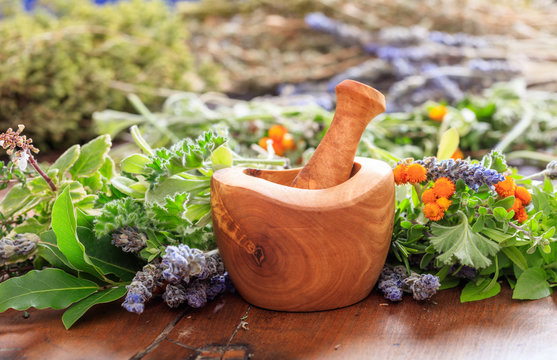Introduction
Herbs and plants have long played a pivotal role in human health and well-being. From ancient civilizations to modern societies, these natural wonders have served as food, medicine, and spiritual tools. Today, as people seek alternatives to synthetic drugs and strive for more holistic lifestyles, there is a renewed interest in the age-old practice of using herbs and plants to support health. Whether it’s a cup of calming chamomile tea or the immune-boosting properties of echinacea, the natural world offers countless treasures for healing and restoration.
A Timeless Tradition
The use of Herbs and Plants for healing is not a modern trend. In fact, the roots of this practice can be traced back thousands of years. Ancient Egyptians used aloe vera to treat wounds, Traditional Chinese Medicine relied on ginseng and ginger, and Ayurveda in India developed detailed systems around herbs like turmeric, ashwagandha, and neem. These traditions didn’t just rely on folklore but were built on generations of observation and experience, forming the foundation of what we now refer to as herbal remedies.
Understanding Herbal Remedies
Herbal Remedies for Treatment and preventive measures that use parts of plants—like leaves, roots, seeds, flowers, and bark—to address various health concerns. Unlike conventional medicines, which often isolate and synthesize individual compounds, herbal remedies typically use whole-plant ingredients. This allows for a more balanced interaction within the body, potentially reducing side effects and supporting overall wellness.
Common forms of herbal remedies include:
- Teas and infusions – Like peppermint or chamomile tea.
- Tinctures – Alcohol-based plant extracts.
- Salves and ointments – Topical applications for skin issues.
- Capsules and tablets – Powdered herbs taken as supplements.
- Essential oils – Concentrated plant extracts used in aromatherapy.
Top Healing Herbs and Plants
While there are thousands of medicinal herbs and plants around the world, a few have become widely recognized for their powerful properties:
1. Turmeric
Rich in curcumin, turmeric has anti-inflammatory and antioxidant effects. It’s commonly used for joint pain, digestion, and even brain health.
2. Lavender
Best known for its calming scent, lavender is used in teas and essential oils to reduce anxiety, promote sleep, and relieve headaches.
3. Echinacea
A staple in immune support, echinacea is often used to prevent or shorten colds and flu-like symptoms.
4. Ginger
Ginger root has potent anti-nausea, digestive, and anti-inflammatory effects. It’s helpful for motion sickness, morning sickness, and muscle soreness.
5. Peppermint
Peppermint oil is used for digestion, headaches, and respiratory issues. It’s particularly effective in soothing irritable bowel syndrome (IBS).
6. Aloe Vera
Aloe Vera succulent is not only used to treat sunburns but is also beneficial for skin irritation, digestion, and inflammation.
7. Ashwagandha
What is Ashwagandha? A powerful adaptogen, ashwagandha helps the body manage stress, improve energy levels, and support mental clarity.
Scientific Backing and Modern Research
Though some people still view herbal medicine as unscientific or anecdotal, modern research is beginning to validate what traditional healers have known for centuries. Studies have shown that many herbs contain powerful compounds with measurable effects on the human body. For example, curcumin from turmeric has been found to have anti-cancer properties in lab settings, and St. John’s Wort has been shown to be effective for mild to moderate depression.
Pharmaceutical companies often start with a plant-based compound before modifying it synthetically. Aspirin, for instance, was originally derived from willow bark, which contains salicin—a natural pain reliever.
Benefits of Herbs and Plants in Everyday Life
Incorporating herbs and plants into your daily routine doesn’t require becoming a full-time herbalist. Small, intentional choices can make a big difference in your well-being. Here are a few benefits of doing so:
Holistic Healing: Herbs support the body’s natural ability to heal without harsh chemicals.
Reduced Side Effects: Natural remedies often come with fewer adverse reactions compared to pharmaceuticals.
Cost-Effective: Growing your own herbs or using basic herbal remedies can be much cheaper than prescription medications.
Preventive Care: Herbs like garlic, green tea, and holy basil can help prevent chronic illness by supporting the immune system and reducing inflammation.
Cautions and Considerations
Despite their natural origins, not all herbs and plants are safe for everyone. Some may interact with medications or be unsuitable for pregnant women, children, or individuals with certain health conditions. For example:
- John’s Wort can interfere with antidepressants and birth control pills.
- Licorice root may raise blood pressure if taken in large amounts.
- Comfrey, though historically used for wound healing, contains compounds that can be toxic to the liver.
- It’s always best to consult with a healthcare provider or qualified herbalist before starting any new herbal regimen.
Growing Your Own Herbal Garden
One of the most rewarding ways to engage with Herbal Remedies is to grow your own herbs and plants. Even if you have limited space, many herbs thrive in pots on a windowsill or balcony. Consider starting with:
- Basil – Great for digestion and inflammation.
- Mint – Useful for nausea and headaches.
- Rosemary – Supports memory and circulation.
- Thyme – A natural antibacterial and great for respiratory health.
Cultivating your own herbs creates a deeper connection with your health and the healing power of nature.
Conclusion: A Return to Roots
As the world becomes more complex and fast-paced, many people are looking to slow down, simplify, and reconnect with nature. Herbs and plants offer a gentle, time-tested approach to health that aligns with the rhythms of the earth and the needs of the body. Whether through sipping herbal tea, applying a healing salve, or planting a windowsill garden, the power of nature’s pharmacy is within reach.
Natural Health News and herbal remedies, not only care for our physical health but also nurture a sense of balance, mindfulness, and respect for the planet. The wisdom of herbs and plants reminds us that sometimes, the best medicine is already growing all around us.









